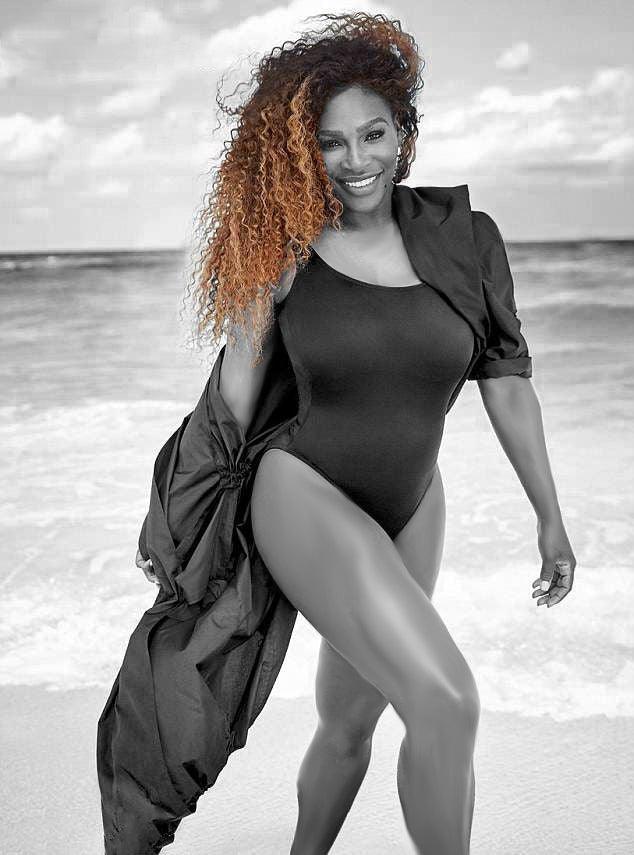After What This Man Said to Serena Williams after Her Grand Slam Win, Is It Finally Time for Black Women to Set Our Own Beauty Standards?


Earlier this month, Serena Williams achieved the impossible—an amazing comeback win in her first Grand Slam appearance after the birth of her daughter Olympia. Unfortunately, Williams had to pull out of further competition in the French Open tournament due to injury just ahead of a quarterfinal match against Maria Sharapova, prompting reporter Bill Simons to ask Serena Williams this:
“I have been waiting about 14 years to ask you this question. After the 2004 Wimbledon match with Maria, I had the opportunity to interview Donald Trump on his L.A. golf course, and he said that Maria’s shoulders were incredibly alluring and then he came up with this incredible analysis: That you were intimidated by her supermodel good looks. My question is: Have you ever been intimidated by anyone on a tennis court, and what are your thoughts about that occurrence?”
Williams, being the queen she is, answered with an amazing amount of class by saying, “I honestly don’t have any thoughts about that. I can’t say I have been intimidated by anyone. That’s all. That’s it.” Not only would a man never be asked if his athletic performance had been affected by his opponent’s physical appearance, and despite the fact that the aforementioned 2004 Wimbledon match was the last time that Sharapova ever beat Williams, this man waited 14 years to throw shade by in so many words echoing Donald Trump’s assessment that Sharapova has “supermodel good looks” and Williams, a dark skinned black woman, doesn’t.
Now, I personally think Serena Williams is beautiful, but in a culture where white beauty standards reign supreme, black women are oftentimes not just left outside of what is considered beautiful but also struggle just to be seen as acceptable. This can have a detrimental effect on how we view our own bodies, facial features, and especially our hair.
In 2016, the “Good Hair Study” conducted by Perception Institute reported some very disturbing findings about the bias that still exists against black hair. Apparently, "a majority of people, regardless of race and gender, hold some bias towards women of color based on their hair," with the strongest bias being held by white women. Some of the most upsetting findings involved the anxiety that black women experience as a result, leading us to “spend more on hair care than [our] white peers” and being “almost twice as likely to experience social pressure at work to straighten [our] hair compared to white women.”
Since “white women make up a large majority of the 38 percent of female managers who decide what looks are appropriate for work,” this can have some serious consequences. Just last month Jada Payadue was kicked out of her nursing school program for wearing her natural hair when the university deemed that it did not meet their criteria because it was “too big” and “not neat.” This is just one example, but there are countless stories I could have pulled from to show black woman being criticized and reprimanded in the workplace and the military for trying to wear their hair the way it naturally grows out of their head.
For most of my life, I got my hair permed and wore straight weaves, and it is only since I entered my 30s that I began embracing my natural hair. One of the most commonly stated barriers to entry for many would-be naturals is lack of time and knowledge regarding how to present their natural hair in the best light.
Emery McClendon, CEO of The McClendon Company and creator of the new, revolutionary product Photogenic has developed a solution for that. McClendon states that his life’s and company’s mission is to “provide time-saving products that advance the culture.” Photogenic is a salon quality all-in-one hair care product that eliminates the need for any additional leave-in conditioners, oils, styling gels, or refresher sprays. Photogenic works on all hair types, so curly and kinky naturals with 3B to 4Z hair can achieve soft, moisture rich curls in just one step. McClendon’s creation has allowed a growing number of black women to save time and money and most importantly discover and embrace their natural beauty.
A change is coming. We are seeing natural hair represented more in the media, and recently Mariah Parker wore an unapologetically black afro to her swearing in ceremony as County Commissioner in Athens, GA. Personally I would love to see black beauty standards based on authenticity, confidence, and a strong sense of personal style. Who’s with me?


